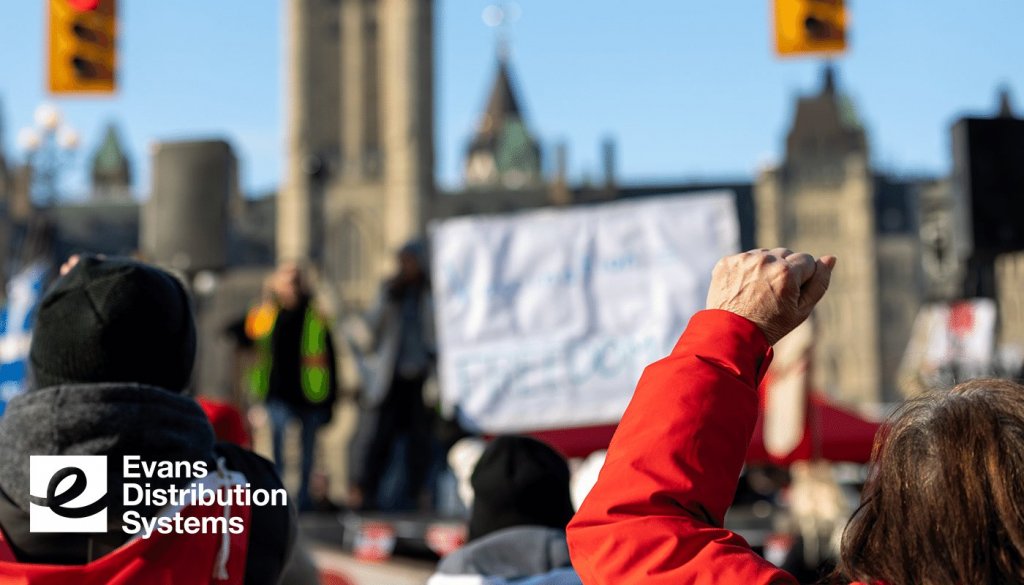On January 15th, 2022, Canada instituted a mandate requiring foreign travelers to be fully vaccinated for COVID-19 upon entering the country. This includes trucker drivers, and other essential workers traveling on business. With a similar mandate announced in the U.S. and large protests interfering with travel from Canada to the U.S., how will this affect the supply chain industry moving forward?

The Mandate:
Prior to January the vaccine mandate only applied to federal workers, and people traveling for non-essential reasons. This new mandate now requires people with essential travel to be vaccinated as well, affecting over 12,000 truck drivers in Canada who cross the border for work. This is not the only policy designed to encourage Canadian citizens to get vaccinated. Quebec, which is home to approximately a quarter of the population requires a vaccine passport to dine in restaurants, go to the gym, buy alcohol or cannabis, or attend sporting events. Quebec has also announced that they will be instituting a fine for any residents who are not vaccinated. Despite the fact that more than 80% of Canadian truck drivers are fully vaccinated, the combination of these restrictions and the travel policy has spurred protests.
The Freedom Convoy:
The Freedom Convoy is a protest movement that began in British Columbia and maintains presence outside Ottawa’s Parliament Hill. Estimates of the movement’s scale range from a few hundred commercial and non-commercial vehicles to 10,000 heavy trucks. Although it is unlikely to get an accurate estimate until the demonstration concludes, Ottawa Police Chief Peter Sloly estimated the crowd to be in the tens of thousands. In the week following that statement, the Ottawa Police Department responded to more than 650 calls, issued 450 tickets, and opened 60 criminal investigations related to the demonstration. The goal of the protest is to remove vaccine mandates, with some calling for the removal of Canadian Prime Minister Justin Trudeau.
The Economic Impact:
On February 7th, protestors blocked access to the Ambassador Bridge causing a closure. The Ambassador Bridge is the busiest international land border crossing accounting for 27% of trade between the U.S. and Canada. It was believed that the protests would impair the flow of shipments, but it has resulted in a complete stop. The bridge which connects Windsor, Ontario to Detroit, Michigan has an especially large impact on the automotive industry which is already strained due to chip, labor, and part shortages. The U.S. imported $14 billion in auto parts from Canada last year, and not receiving those parts on time causes delays in production. As drivers are redirected to other border crossings, the protest is expanding to those locations as well.
Approximately 80% of the Canadian population is fully vaccinated for COVID-19 after implementing strict COVID restrictions. The country experienced a big spike in infection rates in early December until reaching its peak on January 10th, just 5 days before the mandate was enacted. Since the peak, there has been a dramatic decrease in infection rates to 12,000 weekly on average. Although the infection rate is still much higher prior to the holidays, the sharp decline is a positive sign these numbers will continue to improve.
The decision behind COVID restrictions and vaccine mandates has been a contentious issue on both sides of the border. These protests are set to push an already strained supply chain and cause more shortages and delays. Only time will tell the long-term effects of these delays on our economies.
